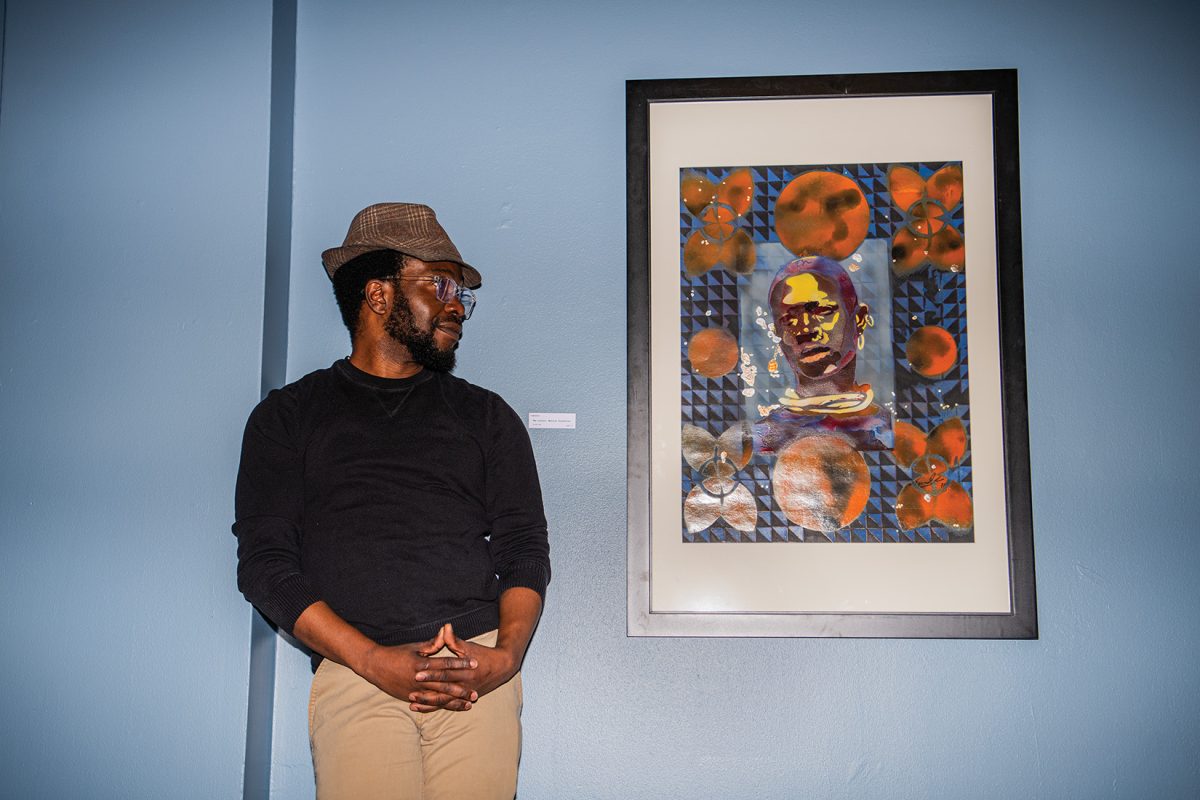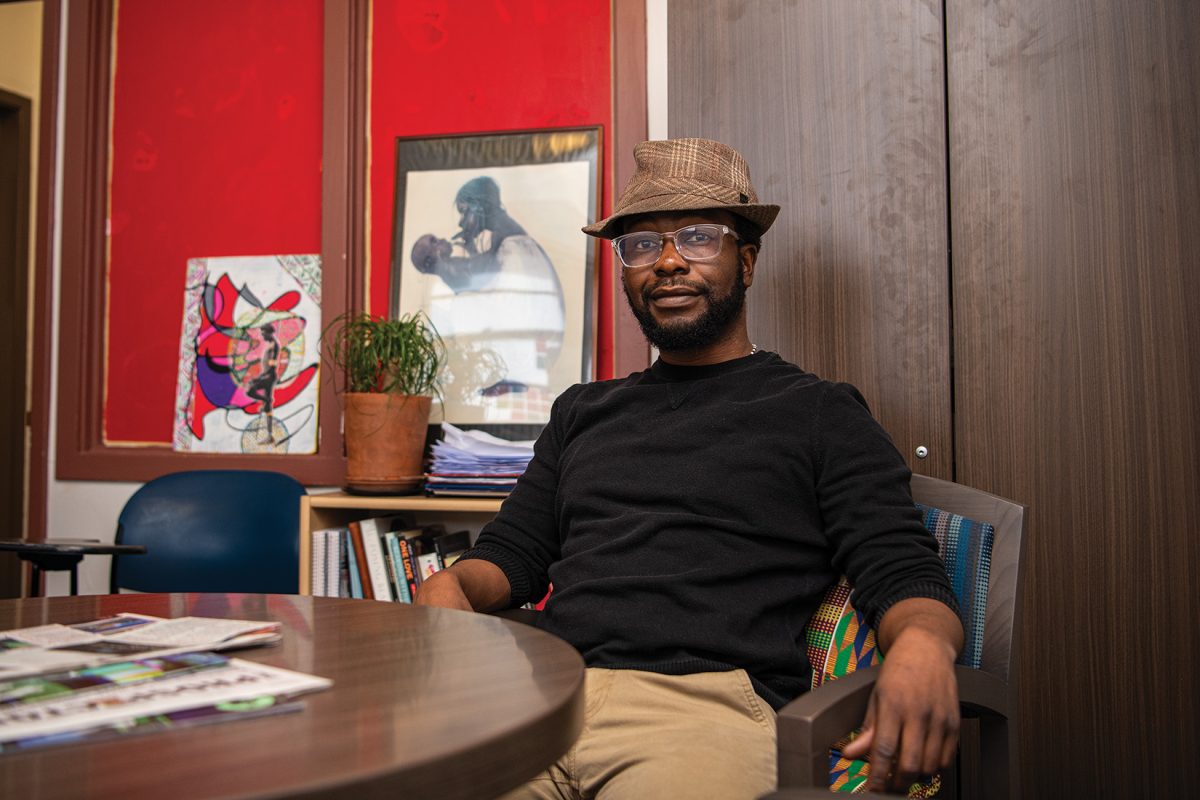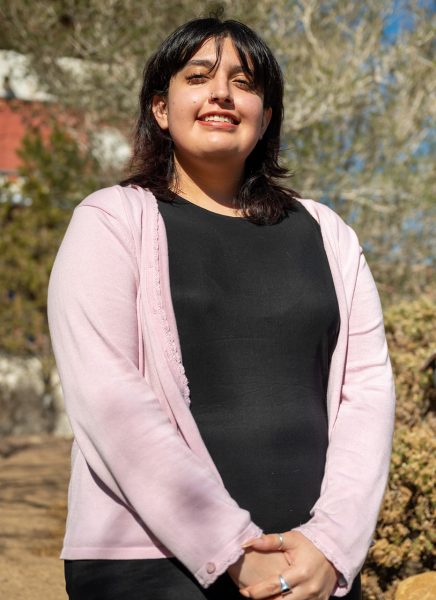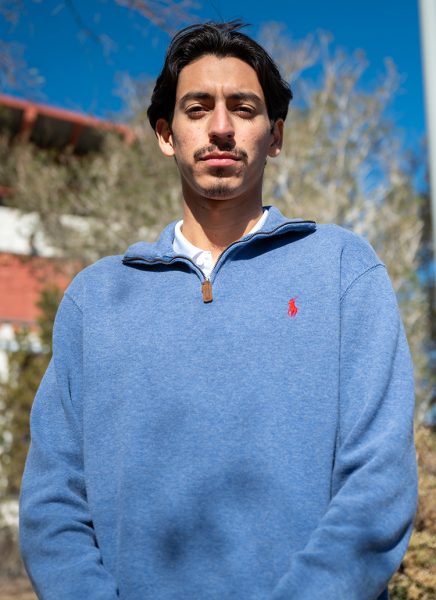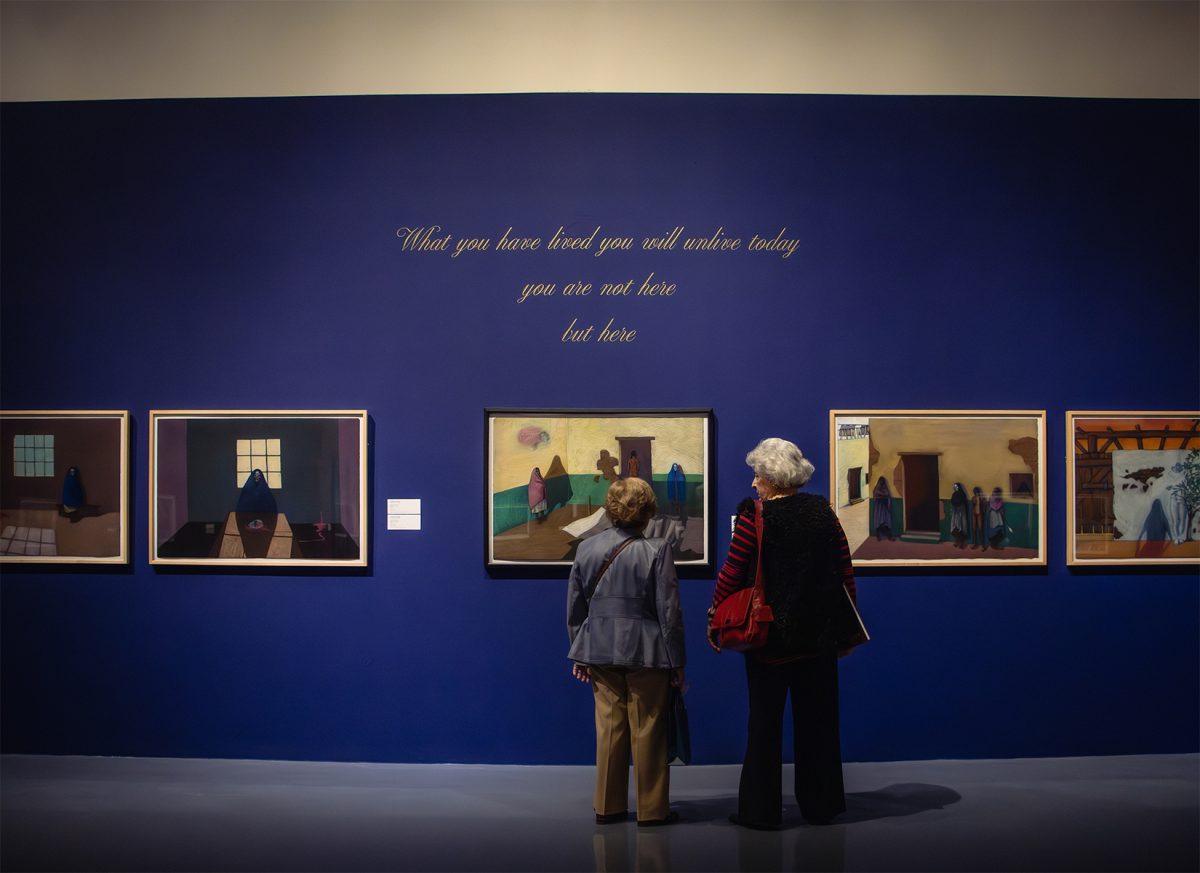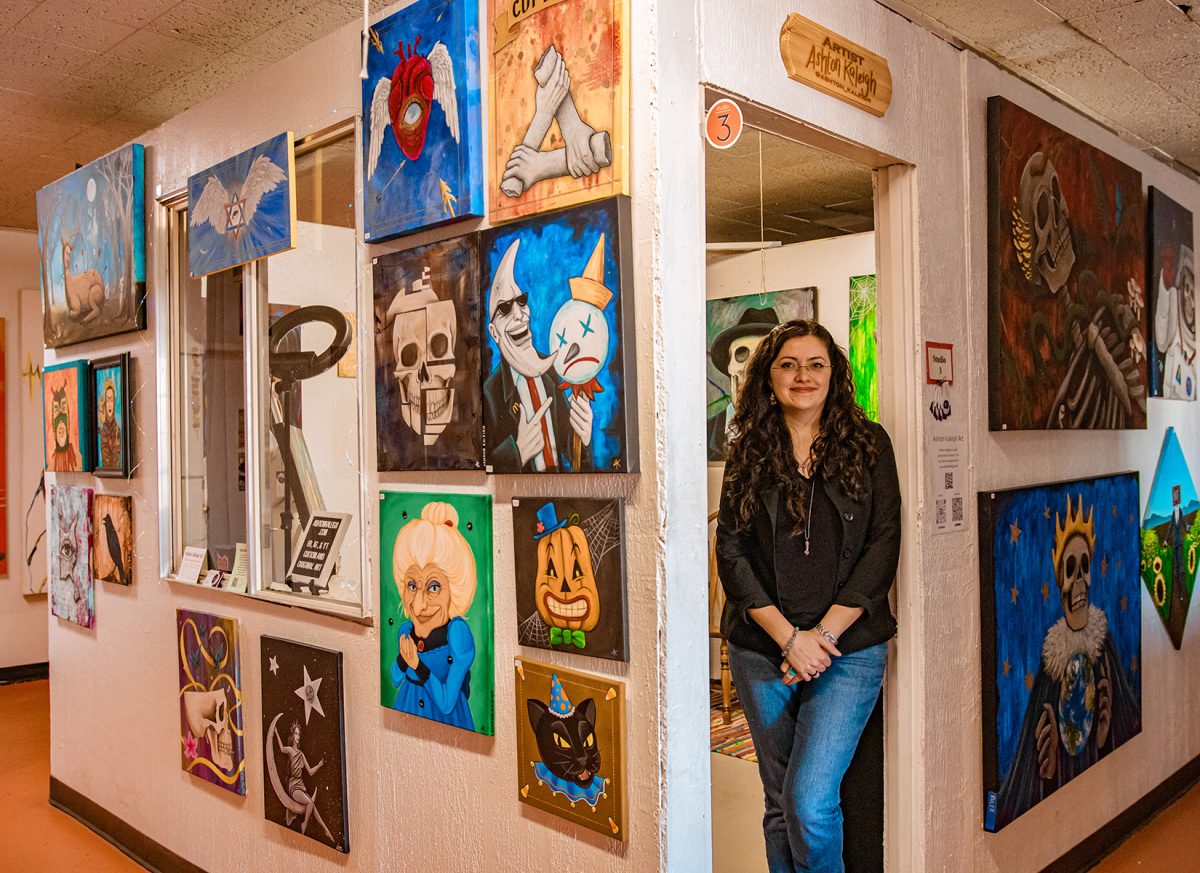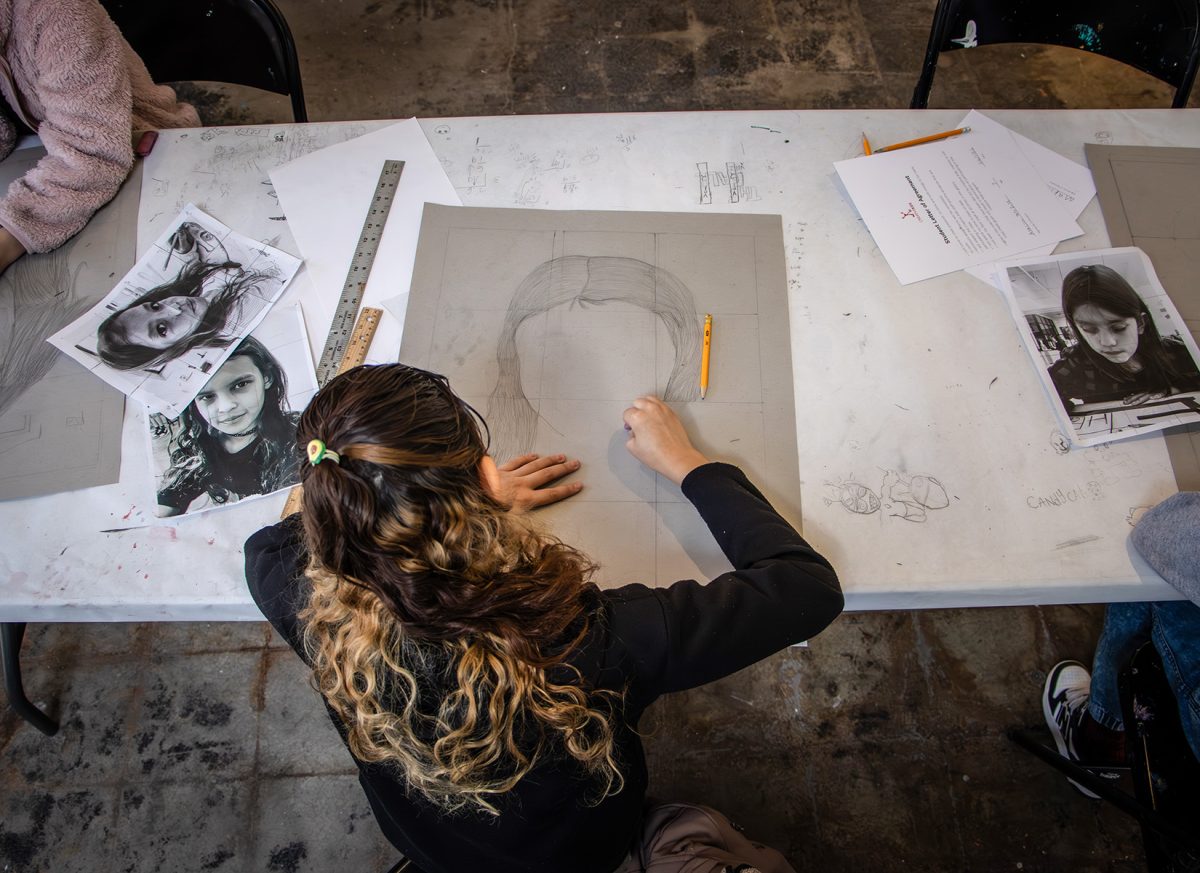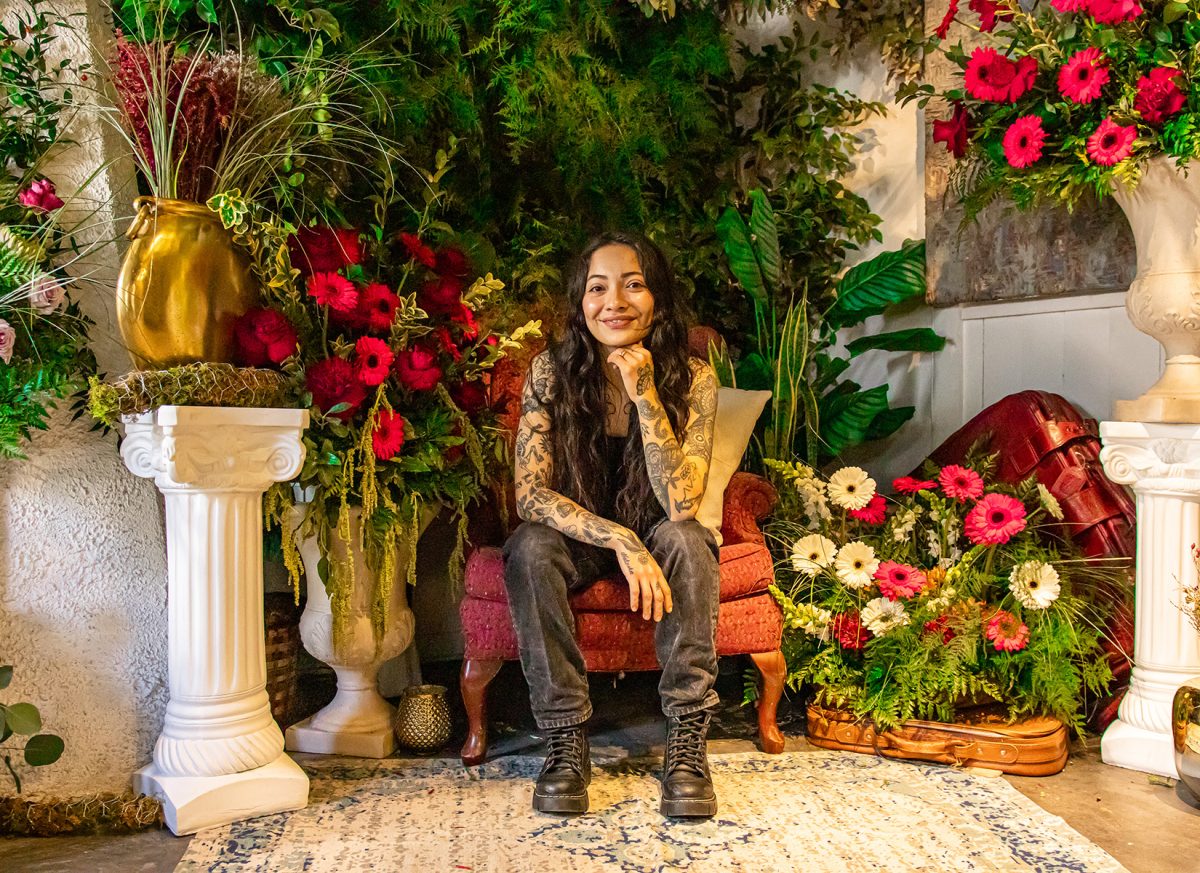Editor’s Note: This is the first in a three-part series.
El Paso is a city that has endless skies, sun and opportunities. It is a community made up of intersecting cultures and borders, providing every resident the chance to immerse themselves in the experience. Rodney Tawanda Chabikwa Ph.D., assistant professor in the department of Theater and Dance as well as the African American Studies Program at UTEP, is a living testament to this with an incredibly unique story of his own in the Sun City.
Chabikwa has not always lived in sunny El Paso. He originates from Zimbabwe, South Africa and lived there until he was a little over 15. He finished high school in Hong Kong and completed a higher education in U.S. institutions in Maine, Dallas and Ohio.
Although he started out wanting a career in medical instrumentation, the moment he first picked up a paintbrush, he fell in love with art. In Maine, he received an undergraduate degree in human ecology with much of his focus being on creative studies and non-profit work. He received an MFA in dance in Dallas and received his Ph.D. in Africana diasporic studies with dance incorporated while in the state of Ohio.
This explains his dual appointment at UTEP and the wide range of courses he has taught over the past four years. Chabikwa has been an educator in subjects such as; African philosophy, Black radical thought and numerous dance courses like Hip-Hop diasporas, contemporary dance, and world dance class with a focus on Africa and the diaspora.
“I love what dance does in the world and I think people forget that dance is not necessarily relegated to just the aesthetic side of looking good and expressing emotions on stage and experiences,” Chabikwa said. “But when you get into dance scholarship it’s really fascinating because you’re really looking at the body in space and time. So that means we look at everything and anything where humans are or things that influence humans and we look at everything as dance as well.”
In terms of how he guides the people who are seeking knowledge from him, Chabikwa takes teaching very personally. He believes in creating a learning environment that allows everyone to cultivate knowledge together. He also encourages people to express love for what they are doing.
“I believe teaching people in ways that are alienated from what they know is not useful,” Chabikwa said. “That’s basically miseducation, and education that takes you further away from your culture, your people, your family is what some people would say (is) psychological violence. But then, I’m from Zimbabwe, a colonized country, so I’m very sensitive about colonial and imperial forms of education. So, what I try to do is decimate that completely.”
He completely challenges the traditional structure of learning environments and instead bases them on three main things.
“Contemplation, transformation and healing, that’s what education is for,” Chabikwa said. “And it is to serve humanity as a whole, because we all live in a human ecosystem.”
This philosophy is what impacts his art and the work he does. Chabikwa also shares some insight on art given to him by mentor Tapfuma Gutsa that continues to carry significance in his life.
“Well, if it’s against the people, it’s not art,” Gutsa said.
Given Chabikwa’s extensive travels, he has garnered a special appreciation for the different places he visits, especially when he is able to learn more about the people around him. For the borderland, Chabikwa has found the people to be kind and the emphasis on community familiar.
“People (here) are also really nice and welcoming and willing to enjoy the presence of other people in a big way,” Chabikwa said. “And also, people are deep into their culture and their family and familial relationships and things of that sort.”
He also recognized the art scene in El Paso and how he admires not only its growth, but the recognition of art from younger creatives.
“That’s something I really like about El Paso,” Chabikwa said. “I think young people in the arts are noticing the possibility of what El Paso could be, and it is rather amazing that we are noticing what a glorious cultural resource just being in this space is and encouraging that and that type of unique self-expression and people starting to love more and more how unique they are in that way.”
One such artistic effort that will also help in Chabikwa’s aspirations for the future is the “Person (Hood): UTEP Dance Festival” that he is directing. For more information, visit the UTEP Department of Theatre and Dance’s website. It will be carried out throughout the month of April with workshops taking place in February too.
At the end of the day, Chabikwa is just like any other resident in the Sun City, a soul looking to learn, grow and share more with his community. As such, he would like to leave people with, “Stay in school and be nice to yourself.”
Meagan Garcia is the arts & culture editor and may be reached at [email protected].


